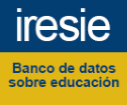THE CUBAN REVOLUTION, THE EDUCATIONAL DIRECTOR AND THE CURRENT POLICY
Keywords:
Cuban Revolution, Fidel Castro, educational director, capacityAbstract
The Cuban Revolution is a revolutionary process that began to take shape at the end of the 19th century, when the frustrated attempt by the mambises, against the Spanish regime, to achieve the independence of Cuba, in which the Liberating Army had an important participation. Leaving their example of patriotism and courage, which were inherited by the young generation of the mid-twentieth century, led by Fidel Castro, commanding the Rebel Army and managing a new strategy of armed struggle against the dictatorship of the moment, led to revolutionary triumph in 1959, from which, and for more than 50 years, the Cuban people's capacity for resistance, intelligence and the ability of the revolutionary leadership, as well as the justness of this country's struggle for its independence, have been maintained. The educational manager must create an atmosphere that inspires innovation, fosters collaboration, is open to new ideas, be yourself, provide a connected learner, locate and provide adequate resources, take risks, have a visionary focus, develop the ability to diagnosis based on knowledge of reality; have a scientific and reflective attitude, meditate on the future; exercise effective leadership and orient knowledge.








